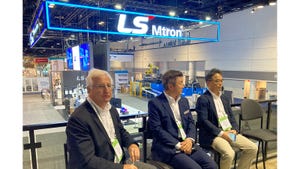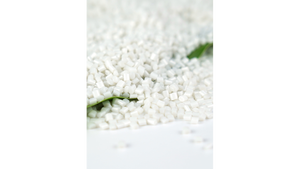E-shots Web-exclusive: Bayer's busy: TPU acquisition; new design center; sustainable initiatives
July 1, 2007
|
In a move that Bayer MaterialScience says will make it the “world's largest supplier of resins and films,†the company has acquired Ure-Tech Group (Taiwan) as of July 1. Global HQ for the Thermoplastic Polyurethanes (TPU) Business Unit will move to Hong Kong by Oct. 1, 2007.
“Moving our global headquarters to Hong Kong highlights the importance of the region,†says Tim Bielfeldt, global head of the TPU Business Unit. “This focus puts Bayer MaterialScience in a solid leadership position, letting us tap into and capture future growth in the world's largest and fastest expanding TPU market-Greater China.â€
Ure-Tech's two TPU production facilities in the Asia Pacific region add to BMS's six others, giving the company a total of eight in Taiwan, China, Japan, India, Europe, and North America.
According to BMS's figures, the total TPU resin/film global market in 2006 was roughly $1.8 billion. Its TPU unit had 2006 sales of $279 million and Ure-Tech Group's sales were $63 million, giving the two companies a combined 19% market share last year. Plus, it estimates annual growth of the TPU market to be about 10% in the Asia Pacific region.
On the customer service side, BMS opened the doors to its newest Design Center in June (see photo). Located within the Color Competence Center in Newark, OH, the new facility is meant to encourage customers to be actively involved in the design process when seeking custom color matches and special effects. Molding equipment onsite will enable customers to take home samples of their choices.
In further Bayer news, the company says it is strengthening its efforts toward climate protection. Part of this initiative is an expansion of its reporting on its indirect and direct greenhouse gas emissions. The Sustainable Development Report 2006 shows that the Bayer Group's emissions dropped by 2.6% in 2006 compared to the previous year and that the company was able to keep emissions virtually constant over the last three years despite increases in production volume. The report also provides detailed information on the Group's sustainability activities, which Bayer hopes will go hand-in-hand with profits.
Other moves that trumpet the company's commitment to social responsibility:
An enterprise-wide policy called the Bayer Human Rights Position that stipulates corporate principles on working conditions and employee conduct, including supplier management.
The new Bayer Science & Education Foundation, which supports students and top scientists.
Another new foundation, the Bayer Cares Foundation, which supports “social activities.â€
You May Also Like



